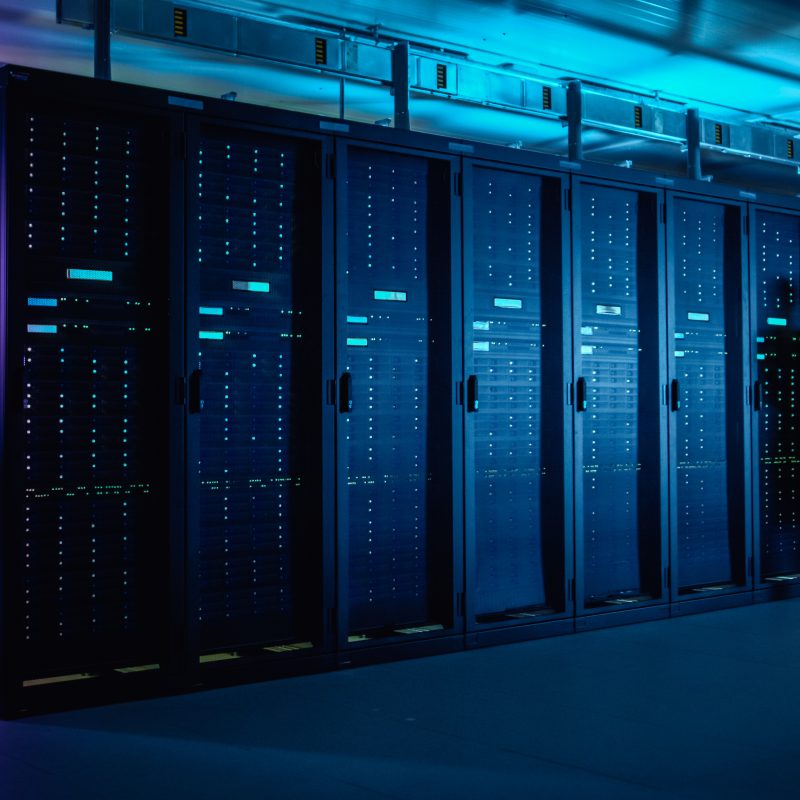Written By: Oplink.net | Last Updated: January 2023
The amount of data businesses require is rising daily, and this upsurge shows no sign of slowing down. That’s why it’s vital that datacenters provide companies with room to grow so that the availability of storage will never hold them back as they expand over time.
When selecting a datacenter, companies are often offered the choice between SSD storage and HDD storage. Both come with certain strengths and weaknesses in terms of performance speed, capacity, reliability and cost.
So there’s no easy answer to the question of which is best. It’s really down to what your company needs, and what resources you already have available.
In this article, we’ll talk you through the two different options and explain how to use both SSD and HDD, to equip you with all the information you need to choose between SSD and HDD storage for your business.
What is SSD Storage?
SSD stands for solid state drives. This is a relatively new technology, and it tends to work much faster than its predecessors.
There are no moving parts in SSD storage devices, as they use flash-based memory to store data. This means that SSD storage can work far more quickly. It tends to provide better resilience than other options too.
One of the commonly talked about drawbacks of SSD storage is its capacity to grow. While classic HDD storage offers endless space for data storage, SSD has been known to put limitations on this.
But, the latest versions of SSDs are available in a huge range of sizes, so businesses can now find the size they need relatively easily.
What is HDD Storage?
HDD refers to a hard disk drive. This is a fixed disk which is stored within a computer, designed to house data via magnetic storage technology. The two rotating platters in the HDD can read and write data, which can then be easily accessed via the computer itself.
HDD is a form of storage that has been around for decades. The devices were first introduced by IBM back in the 1950s, and they’re still a widely used, reliable option for businesses today.
Over the years, the capabilities of HDDs have improved quite dramatically. Today, companies can purchase HDDs with room for a whopping 10 TBs of data. Yet the technology these storage devices rely on remains very similar to the system that was first introduced all those years ago.
How to Choose Between SSD and HDD Storage
Making a choice between SSD and HDD storage is rarely as simple as it sounds. But start looking into what these storage devices can do and you’ll soon see a winner begin to emerge.
The Advantages of SSD Over HDD
We always recommend SSD storage to companies who are completely unsure of which option is for them. That’s because SSD storage tends to be faster. It’s also more predictable than HDD.
With SSD, the latency is lower for both the writing and reading of data, which brings considerable benefits to any company.
HDD storage remains a popular option, despite the faster processing speeds of SSD storage devices. And that’s because HDD storage tends to be more affordable. For companies that need to store huge volumes of data, HDD sometimes provides better value for money than SSD devices.
Before you make a decision on whether your company would benefit more from SSD and HDD storage, it’s worth calculating how much space you need at present and beginning to forecast what your storage requirements might be in the near future.
Choose a storage device that offers your company room to grow. This will ensure that data limitations don’t get in the way of the ambitious expansion plans your team has.
How to Use Both SSD and HDD
Speak to your datacenter about the different storage options they offer, and get the lowdown on the pros and cons of each one. Don’t be afraid to ask questions. Your datacenter team will know these storage devices inside out, and they’ll be more than happy to advise you on the best options for your particular requirements, both at present and in the coming years.
Choosing a future-proof option for your business is enormously important. Because while it is possible to change storage devices, this is rarely easy.
Switching between SSD and HDD can be time-consuming and expensive, so opt for a storage device that’s suitable for the data storage requirements your company might have in the future to avoid a tricky switching process further down the line.
Get Advice on SSD and HDD Storage
SSD and HDD storage devices provide reliable and affordable storage solutions for companies operating in any industry. But the speed and efficiency of SSD mean it’s fast becoming the most popular option for growing businesses.
With data requirements on the rise for all brands, it’s worth getting to grips with your storage requirements early, to ensure that your systems are set up to handle the huge amounts of data you’ll need to store.
If you have any questions about SSD vs HDD, or you need more advice on storage solutions for your business, don’t hesitate to get in touch with our team. We’re on hand to help solve all your storage dilemmas.
